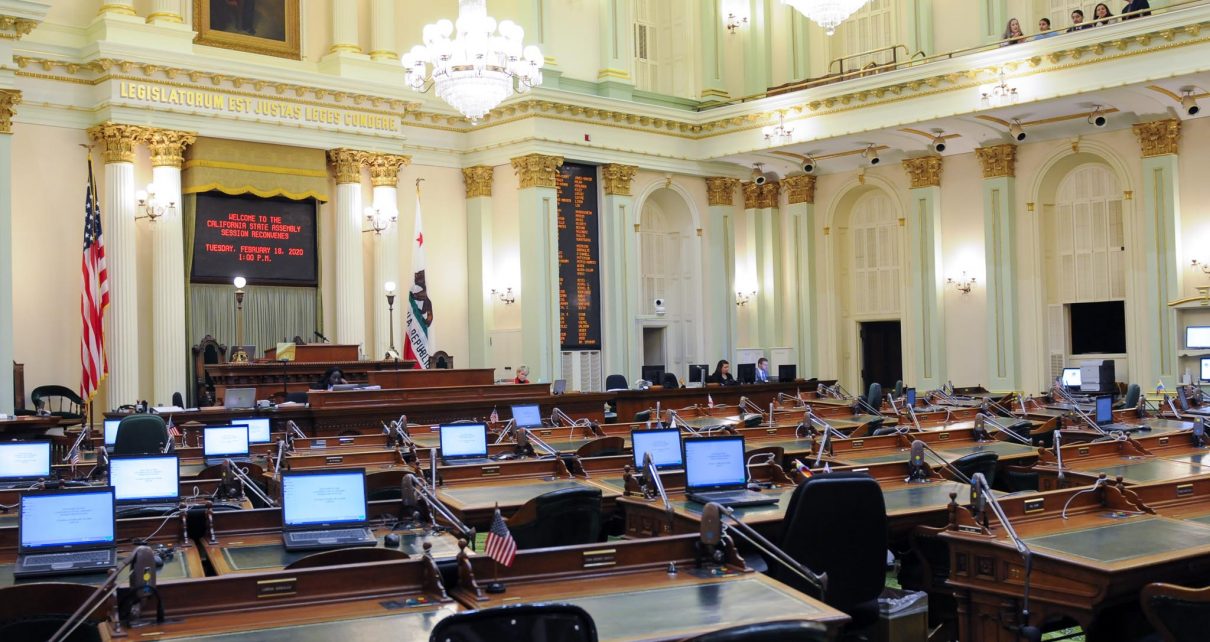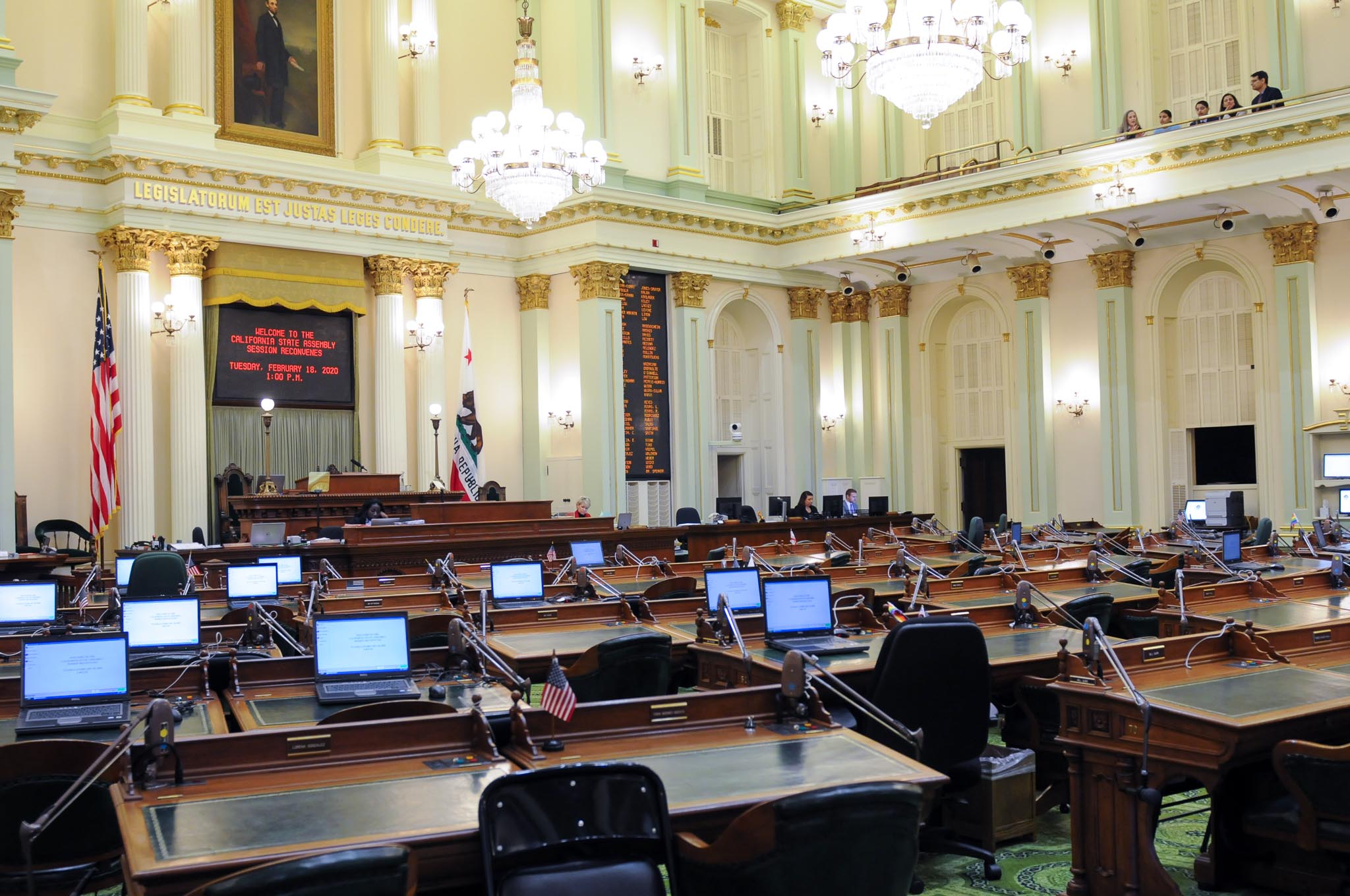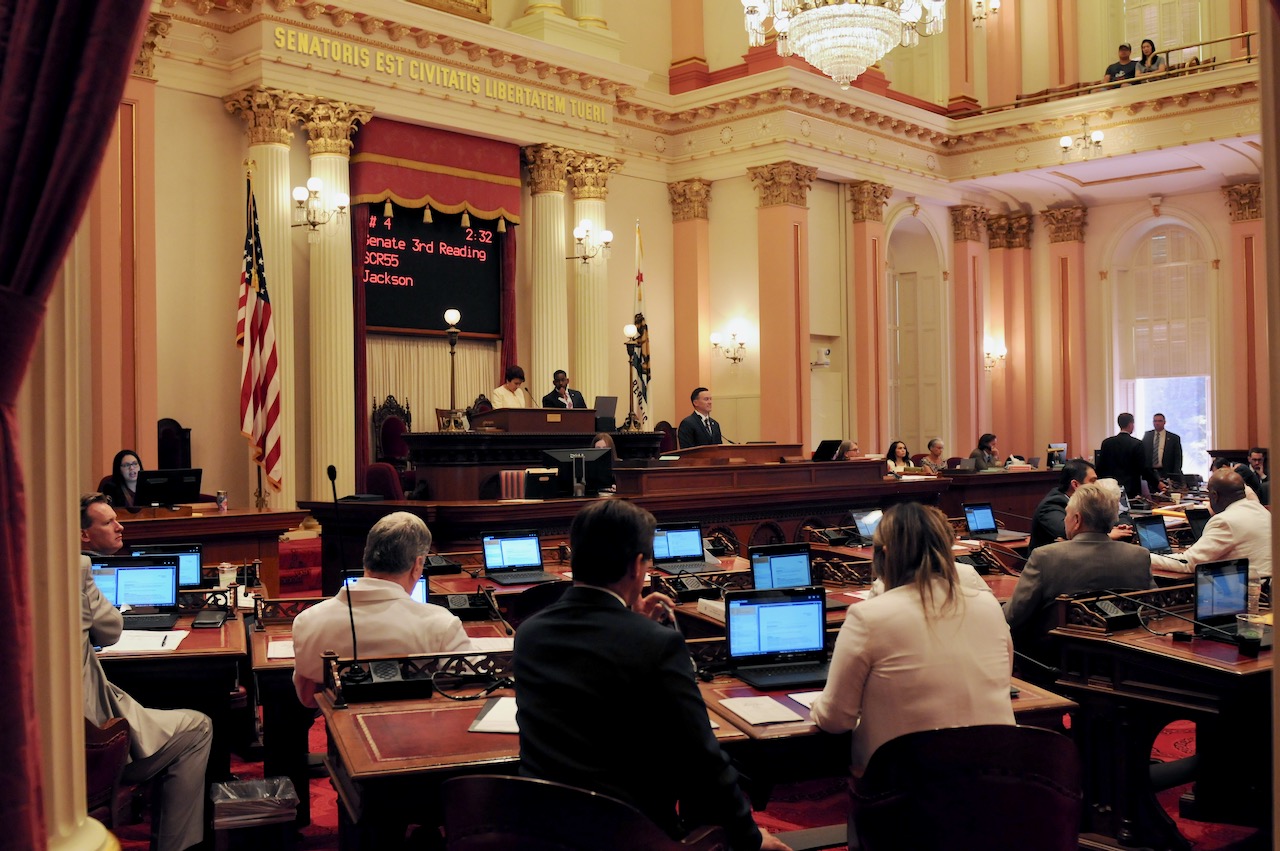
California State Assembly. (Photo: Kevin Sanders for California Globe)
Frequently Asked Questions about the ‘Sunrise’ Process
The so-called ‘sunrise’ process is the opposite of a ‘sunset’ repeal process
By Chris Micheli, December 5, 2023 6:36 am
In California, as in a number of other states, there is the so-called “sunrise” process, which is the opposite of a “sunset” (or repeal) process, in the law.
When is the “sunrise” process used? When establishing a new regulatory scheme for an occupation or profession, the Legislature will proceed with the sunrise process, which is when they assess a request for a new (or enhanced) occupational regulation.
Where in the law is the sunrise process found? In Government Code Title 2, Division 2, Part 1, Chapter 1.5, Article 8 (“Legislative Oversight of State Board Formation and Licensed Professional Practice”), Sections 9148 to 9148.8, there is a process for reviewing a new licensing board and licensed professions in this state.
Which state entities are subject to the sunrise process? Government Code Section 9148.2 defines the term “state board” to mean “any administrative or regulatory board, commission, committee, council, association, or authority consisting of more than one person, whose members are appointed by the Governor, the Legislature, or both.” However, the term does not include any commission created by the Legislature under the Food and Agricultural Code.
What must a proposed new entity do? Section 9148.4 requires a plan to be developed, prior to consideration by the Legislature, of legislation creating a new state board or legislation creating a new category of licensed professional.
What is the purpose of this plan? The plan is for the establishment and operation of the proposed state board or new category of licensed professional and is required to be developed by the author or sponsor of the legislation.
What must be included in this plan? Section 9148.4 requires the plan to include: (a) A description of the problem that the creation of the specific state board or new category of licensed professional would address; (b) the reasons why this proposed state board or new category of licensed professional was selected to address this problem; (c) the specific public benefit or harm that would result from the establishment of the proposed state board or new category of licensed professional; (d) the specific sources of revenue and funding to be utilized; and, (e) the necessary data and information required to be provided to the Legislature.
Do alternatives need to be considered? Yes, the plan must include the full range of alternatives considered and the reason why each of these alternatives was not selected.
What is the role of legislative committees? Section 9148.8 allows the appropriate policy committee of the Legislature to evaluate a plan prepared pursuant to this law.
What is the role of the Joint Sunset Review Committee? It is required to provide to the respective policy and fiscal committees of the Legislature any evaluation and recommendations prepared pursuant to this section.
What are the criteria used to determine whether a profession or occupation needs to be regulated? There are nine criteria provided in the Government Code.
What is the purpose of the Questionnaire? It is used as an aid to legislative and administrative officials. “The questionnaire is an objective tool for collecting and analyzing information needed to arrive at accurate, informed, and publicly supportable decisions regarding the merits of regulatory proposals.”
What must be included in the Questionnaire? Section A helps identify the group seeking regulation and helps determine whether the applicant group adequately represents the occupation. Section B will identify (1) consumers who typically seek practitioner services, and (2) non-applicant groups with an interest in the proposed regulation. Section C has two parts: Part 1 allows presentation of data that support the application for regulation. Part 2 requires the applicant group to complete a self-rating on each of the Sunrise criteria.
- Scope of International Commercial Arbitration - February 14, 2026
- Eminent Domain Law - February 13, 2026
- International Disputes Arbitration Agreements Generally - February 13, 2026




